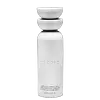What's inside
What's inside
 Key Ingredients
Key Ingredients

 Benefits
Benefits

 Concerns
Concerns

 Ingredients Side-by-side
Ingredients Side-by-side

Ketoconazole 1%
Benzyl Alcohol
PerfumingBHT
AntioxidantBlue 1 Lake
Cosmetic ColorantCitric Acid
BufferingCocamide Mea
EmulsifyingParfum
MaskingGlycol Distearate
EmollientHydrochloric Acid
BufferingHydroxypropyl Methylcellulose
Emulsion StabilisingPolyquaternium-7
Sodium Chloride
MaskingSodium Cocoyl Sarcosinate
CleansingSodium Hydroxide
BufferingSodium Laureth Sulfate
CleansingTetrasodium EDTA
Water
Skin ConditioningWater
Skin ConditioningSodium C14-16 Olefin Sulfonate
CleansingMicrocrystalline Cellulose
AbsorbentCocamidopropyl Hydroxysultaine
CleansingSodium Cocoyl Isethionate
CleansingAcrylates Copolymer
Glycerin
HumectantLactobacillus/Salix Purpurea Bark Ferment Extract
AntiseborrhoeicMelaleuca Alternifolia Leaf Oil
AntioxidantOlea Europaea Fruit Oil
MaskingMentha Piperita Oil
MaskingNiacinamide
SmoothingSodium Gluconate
Skin ConditioningLactobacillus
Skin ConditioningCitrus Limon Peel Oil
MaskingRosmarinus Officinalis Leaf Oil
MaskingMontmorillonite
AbsorbentMenthoxypropanediol
MaskingGlycol Distearate
EmollientPolyquaternium-7
Citric Acid
BufferingHydroxyacetophenone
AntioxidantSodium Hydroxide
BufferingEthylhexylglycerin
Skin ConditioningPotassium Sorbate
PreservativePhenoxyethanol
PreservativeTocopherol
AntioxidantLactic Acid
BufferingSodium Benzoate
MaskingTetrasodium EDTA
Limonene
PerfumingWater, Sodium C14-16 Olefin Sulfonate, Microcrystalline Cellulose, Cocamidopropyl Hydroxysultaine, Sodium Cocoyl Isethionate, Acrylates Copolymer, Glycerin, Lactobacillus/Salix Purpurea Bark Ferment Extract, Melaleuca Alternifolia Leaf Oil, Olea Europaea Fruit Oil, Mentha Piperita Oil, Niacinamide, Sodium Gluconate, Lactobacillus, Citrus Limon Peel Oil, Rosmarinus Officinalis Leaf Oil, Montmorillonite, Menthoxypropanediol, Glycol Distearate, Polyquaternium-7, Citric Acid, Hydroxyacetophenone, Sodium Hydroxide, Ethylhexylglycerin, Potassium Sorbate, Phenoxyethanol, Tocopherol, Lactic Acid, Sodium Benzoate, Tetrasodium EDTA, Limonene
 Reviews
Reviews

Alternatives
Ingredients Explained
These ingredients are found in both products.
Ingredients higher up in an ingredient list are typically present in a larger amount.
Citric Acid is an alpha hydroxy acid (AHA) naturally found in citrus fruits like oranges, lemons, and limes.
Like other AHAs, citric acid can exfoliate skin by breaking down the bonds that hold dead skin cells together. This helps reveal smoother and brighter skin underneath.
However, this exfoliating effect only happens at high concentrations (20%) which can be hard to find in cosmetic products.
Due to this, citric acid is usually included in small amounts as a pH adjuster. This helps keep products slightly more acidic and compatible with skin's natural pH.
In skincare formulas, citric acid can:
While it can provide some skin benefits, research shows lactic acid and glycolic acid are generally more effective and less irritating exfoliants.
Most citric acid used in skincare today is made by fermenting sugars (usually from molasses). This synthetic version is identical to the natural citrus form but easier to stabilize and use in formulations.
Read more about some other popular AHA's here:
Learn more about Citric AcidGlycol Distearate serves as a pearlizing or opacifying agent in cosmetic products.
It's often included in cleansers and haircare products to give them a lustrous or shimmering appearance.
It is derived from stearic acid, a natural fatty acid commonly found in vegetable oils and animal fats.
Glycol Distearate isn't fungal acne safe.
Learn more about Glycol DistearatePolyquaternium-7 is a light to clear colored liquid. It is commonly found in haircare products for its film-forming and anti-static properties.
According to a manufacturer, it is a non-paraben and specially developed for negatively charged surfactant systems. This makes it a great hairstyle holder and helps to improve wet hair detangling without adding buildup.
Sodium Hydroxide is also known as lye or caustic soda. It is used to adjust the pH of products; many ingredients require a specific pH to be effective.
In small amounts, sodium hydroxide is considered safe to use. However, large amounts may cause chemical burns due to its high alkaline.
Your skin has a natural pH and acid mantle. This acid mantle helps prevent harmful bacteria from breaking through. The acid mantle also helps keep your skin hydrated.
"Alkaline" refers to a high pH level. A low pH level would be considered acidic.
Learn more about Sodium HydroxideTetrasodium EDTA is the salt formed from neutralizing ethylenediamine tetraacetic acid with sodium hydroxide. It is a chelating agent and used to prevent metal ions from binding to other ingredients. This helps keep the product and ingredients stable.
Tetrasodium EDTA comes as a white solid and is soluble in water.
Water. It's the most common cosmetic ingredient of all. You'll usually see it at the top of ingredient lists, meaning that it makes up the largest part of the product.
So why is it so popular? Water most often acts as a solvent - this means that it helps dissolve other ingredients into the formulation.
You'll also recognize water as that liquid we all need to stay alive. If you see this, drink a glass of water. Stay hydrated!
Learn more about Water